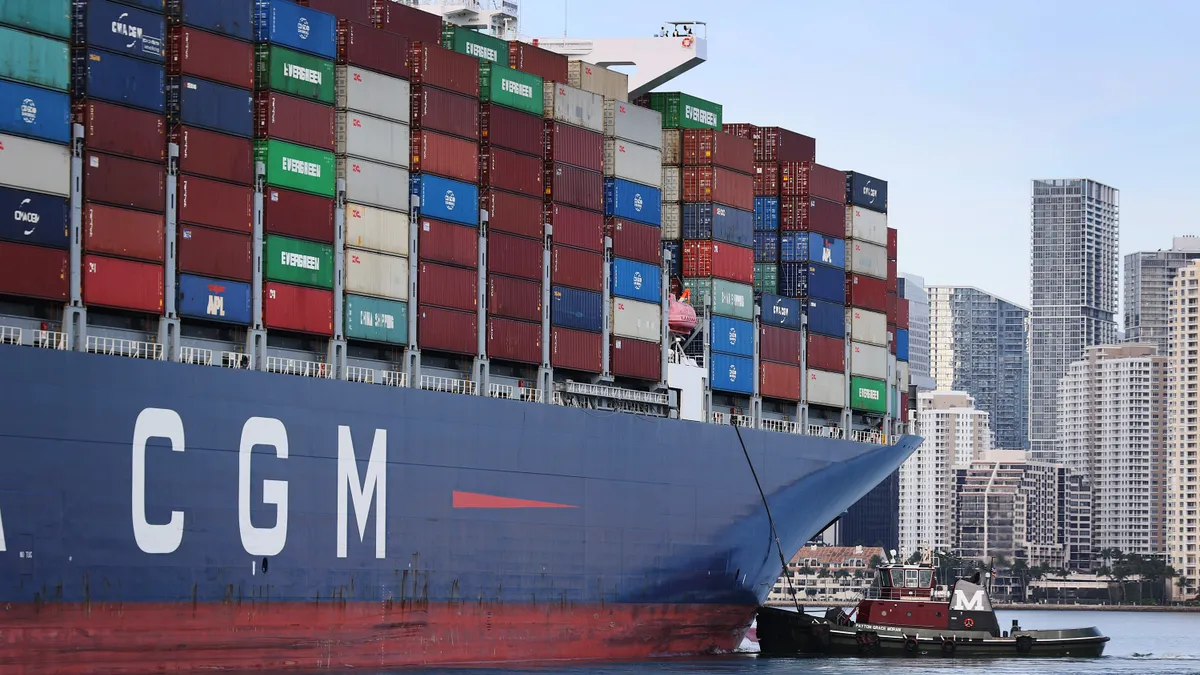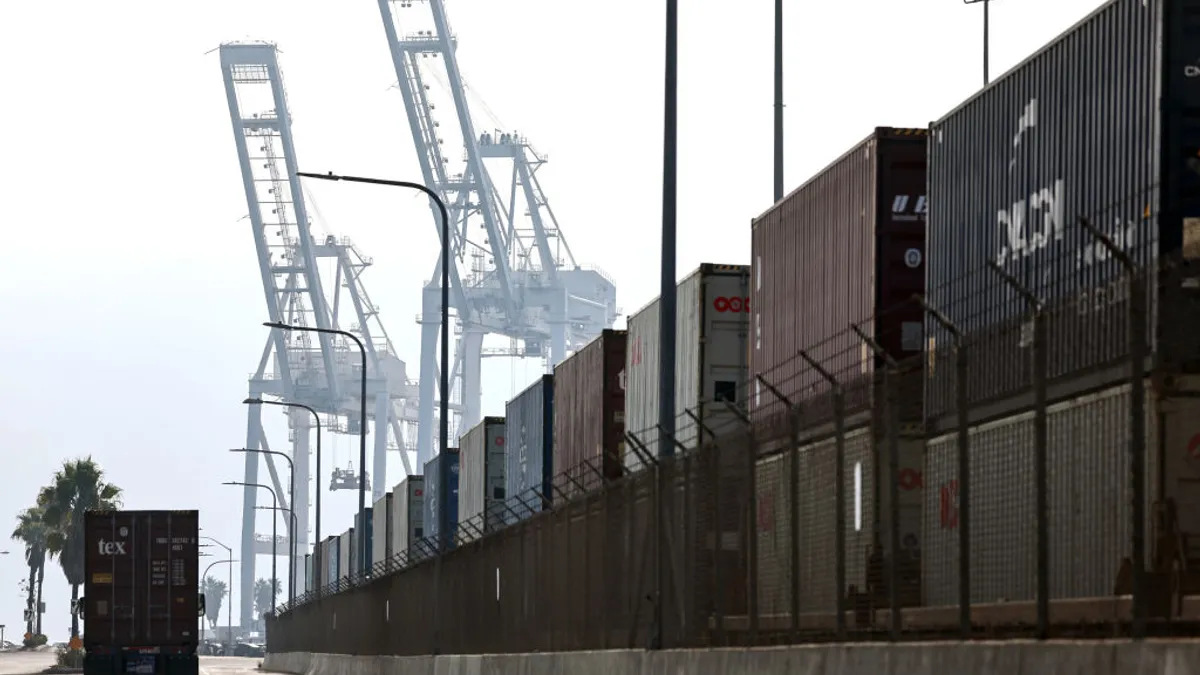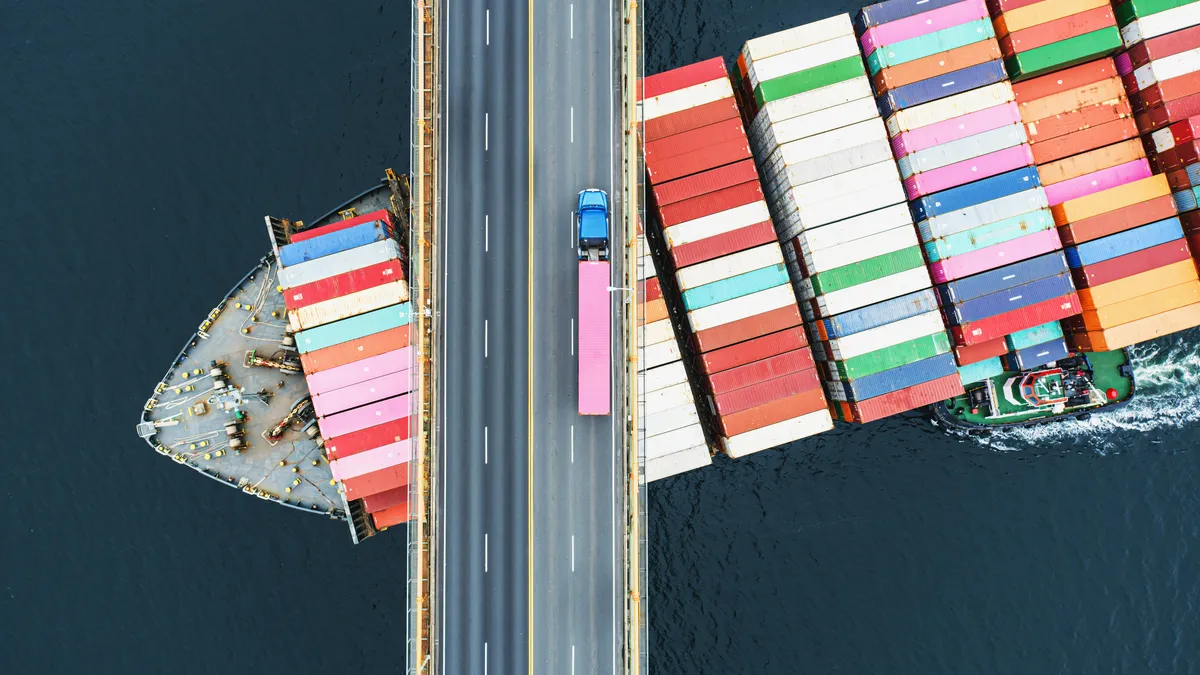UPDATE: Aug. 9, 2021: The Canada Border Services Agency and its union workers reached a tentative agreement late Friday night, ending the labor actions that began Friday morning.
The Public Service Alliance of Canada and Customs and Immigration Union said in a news release that the agreement "ensures the flow of border traffic will return to normal as the government prepares to welcome fully vaccinated U.S. travelers on Monday, August 9."
The four-year tentative agreement applies to nearly 9,500 border services officers, according to a statement from the Government of Canada.
Commercial traffic at Canadian ports could see delays as union workers at the Canada Border Services Agency began labor actions Friday morning that have them doing their jobs strictly as outlined in their contracts, reducing productivity.
The "work-to-rule" actions come amid ongoing contract negotiations and will involve nearly 9,000 employees. These actions "could have a dramatic impact on Canada's supply chain and the government's plans to reopen the border to U.S. travellers on August 9," the Public Service Alliance of Canada and the Customs and Immigration Union said in a joint news release Wednesday.
The Public Service Alliance of Canada's "bargaining team has been at the table all night, and we're giving them a bit more time to negotiate" for a contract, said Communications Officer Jeffrey Vallis in an email.
The Canadian border is set to open for nonessential travel from the U.S. after being closed due to the COVID-19 pandemic. Those involved in cross-border trade or transportation, including truck drivers, aircraft crew members and shipping vessel crew, have been exempt from the restrictions. But now, commercial transport could be slowed along with U.S. leisure travelers due to the work-to-rule actions.
Commercial truck drivers from Michigan were already experiencing delays attempting to cross the bridge into Windsor, Ontario on Friday morning, The Detroit News reported.
Maersk said in an advisory Tuesday that many CBSA jobs "involve a mix of essential and non-essential services," making it difficult to assess what positions would be affected.
"Nevertheless, a slowdown or withdrawal of [non-essential services] could have cascading effects throughout the supply chain, which could extend to the movement of commercial traffic at the border and ports of entry," Maersk said.
Calgary International Airport said in a statement it's working with airport partners to minimize the effects of the actions on passengers and employees but added that "CBSA wait times could increase." The Port of Halifax said in a statement it's working with its partners "to ensure the efficient movement of cargo," adding that it hasn't experienced any delays due to the labor action as of Friday morning.
PSAC said the work-to-rule action is the first step for strike activity in a separate news release Wednesday.
“Other stages, including the general strike, rotating strikes, and strategic strikes, are all options considered for the next stages,” it said. “It is during these that the 'essential' and 'non-essential' designations will come into play.”
Canada is a significant U.S. trading partner and was the country's largest goods export market in 2019, according to the Office of the United States Trade Representative. The top exports to Canada in 2019 were vehicles ($52 billion) and machinery ($45 billion). Canada's top trading partners are the U.S., the European Union and China.
Unionized employees with PSAC and the Customs and Immigration Union "are seeking better protections against a toxic workplace culture at CBSA, and greater parity with other law enforcement agencies across Canada," according to the news release. The Treasury Board of Canada, which is handling contract negotiations for the Government of Canada, said its offer to PSAC is in line with other recently negotiated agreements.
"The Government of Canada has great respect for border services officers and the important work that they do and remains committed to reaching agreements with all bargaining agents that are fair to employees, mindful of today’s economic and fiscal context and reasonable for Canadian taxpayers," it said in a statement.
The unions are conducting a work-to-rule action since it allows all members to participate — a high number of Canada Border Services Agency employees are deemed essential, according to PSAC.
"We understand that Canada Border Services Agency is actively working on mitigating impact to the flow of good and services," said Paula Copeland, director of communications and corporate social responsibility for Port Saint John, which is Atlantic Canada's largest port by volume, in an email. "We are encouraged that talks are continuing between both parties to seek a resolution."





















